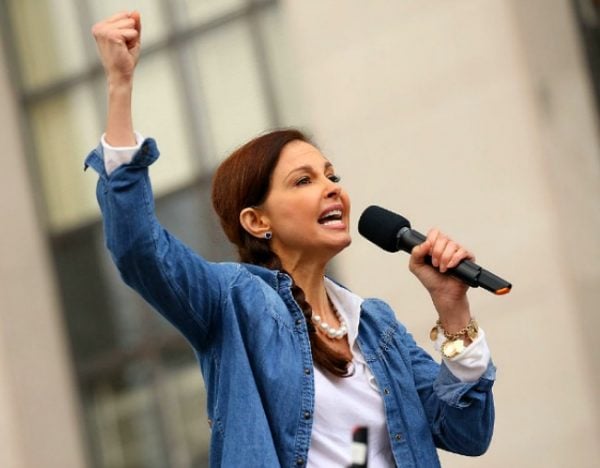At the 2017 Women’s March in Tennessee, Ashley Judd stood at the front of a crowd of thousands, her fist high, her voice booming, her hair in a no-fuss low plait snaking its way around her neck.
The Ashley Judd that stood in front of the crowds at the 2017 Tennessee Women’s March wasn’t Ashley Judd the performer but Ashley Judd the human: fiery, open, ready.
She read a poem written by a 19-year-old named Nina Donovan. “I am a nasty woman,” she said. She touched on Trump’s election, LGBT rights, the wage gap. She stood at the front of that crowd and pledged her allegiance to women. The nasty women, the fiery women, the unsettled women.
“Our pussies,” she spectacularly declared, “ain’t for grabbing.”
Self-explanatory, of course, if it wasn’t for the fact it had been an occasional pastime of the leader of the free world.
Business Insider labelled her the “breakout star” of the Women’s March. Over the course of 2017, it wouldn’t be the first time her voice lent itself to the feminist cause with far-reaching implications for the rest of the world.
In fact, it wouldn’t stand close to the most important thing Ashley Judd would do this year.
On October 5, 2017, The New York Times ran its now-famous exposé into the allegations of sexual misconduct levelled at Harvey Weinstein. For Jodi Kantor, one of two key journalists involved in the story, it wasn’t an easy story to report nor break. In an interview with Slate earlier last month, she said as much.


